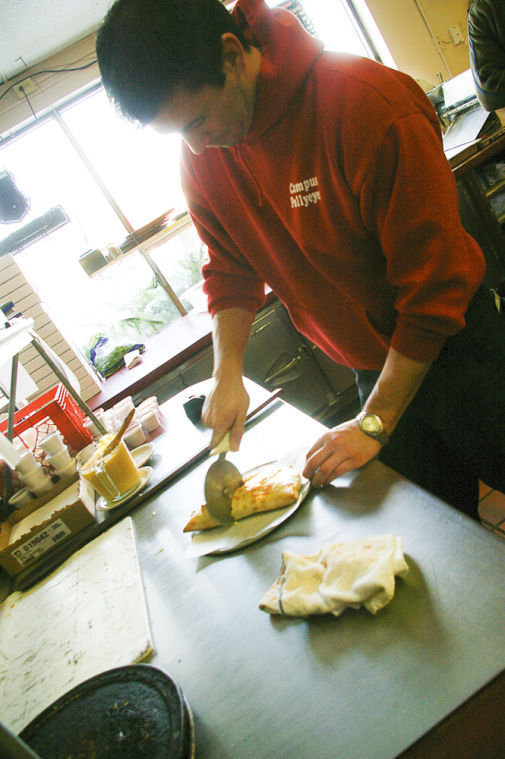When Josh DeChant began working at Campus Pollyeyes more than three years ago to pay his way through college, he didn’t think it would help him develop leadership skills as well.
College students sometimes have a lot of activities to juggle, so throwing off-campus work into the mix might seem like too much, but new research suggests off-campus work may not be as harmful as past research showed.
In fact, it can be beneficial.
A 2012 study in the Journal of College Student Development, “The Effects of Work on Leadership Development among First-year College Students,” found a positive link between off-campus work and the development of leadership traits.
“A job can actually be very important in helping [students] figure out what’s the right career path for them and develop the skills, traits and characteristics that would help them as young adults,” said Mark Salisbury, one of the researchers and assistant dean and director of institutional research and assessment at Augustana College in Illinois.
According to the research, off-campus work of more than 10 hours a week has a positive impact on leadership development during freshman year.
This is welcomed news to DeChant, a summer 2012 graduate of the University.
“I liked being off-campus just because it was separate from being in school,” said DeChant, one of the cooks. “It’s a pretty good environment [and] everyone gets along pretty well.”
Dean Smith, who has been a manager at Pollyeyes for 10 years, said he has high expectations for employees, about half of whom are University students.
“We break them down to nothing and then we build them back up,” Smith said. “By the time they are finished being baptized in the Pollyeyes fire, they have the skills they need to do anything in the entire world.”
Pollyeyes builds leadership skills by promoting teamwork and a “dedication to excellence,” Smith said.
“They have to be willing to lay their life down for me, and I’m willing to do the same for them,” he said.
Smith said Pollyeyes sees its “all-stars” and “duds,” and that DeChant ranks in the former.
“He came here as a zero, he’s leaving as a hero,” Smith said.
These findings, however, mostly apply to off-campus work, not on-campus work, which according to the results had almost no impact on leadership development.
“In a large, general sense, [off-campus] work turns out to be pretty valuable educationally for students,” Salisbury said. Compared to on-campus work, “The expectations are pretty high and there’s an accountability level.”
However, the research found that too much work off campus, more than 30 hours a week, limits peer interaction and extra-curricular activities, which also enhance leadership skills.
Jacob Clemens, assistant dean of students in the Center for Leadership, said other things besides work are more pivotal in fostering leadership in students.
“The more interaction a student has with his peers or faculty, the more of a positive effect,” Clemens said.
Clemens cited a national survey, “Multi-institutional Study of Leadership,” that 1,000 University students participated in. The survey studied the areas that most influence leadership skills in students.
For the University’s population, among the most important areas of building leadership were relationships with faculty, leadership training and student organizations, Clemens said.
In fact, Clemens said off-campus work proved harmful, as it prevents development on campus.
“You’re going to take away from opportunities to interact with peers or be involved in organizations,” he said.
Still, Salisbury said he was always skeptical of the emphasis on the negatives of work in college, believing there must be underlying positive effects too.
“There’s the sort of mythology, if you will, amongst higher education folks … that it would be better somehow for students who go to college to not have to have a job,” Salisbury said. “I’ve always thought, ‘You know, I’m not so sure I buy that.’”














